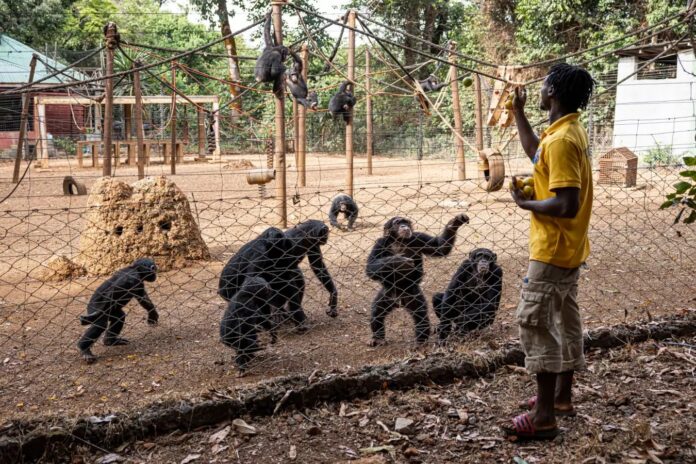A new book, The Arrogant Ape by primatologist Christine Webb, dismantles the long-held belief in human exceptionalism, arguing that this ideology distorts scientific understanding and accelerates ecological breakdown. Webb contends that characteristics traditionally used to justify human dominance—reason, tool use, morality, even pain perception—are not unique to our species.
Challenging the Core Belief
Webb’s argument rests on the observation that many species exhibit complex intelligence, social bonds, and tool use (crows, chimps), while others demonstrate pain sensitivity (fish, crustaceans) and cultural transmission (bees). She posits that the idea of human supremacy is rooted in religious tradition and reinforced by biased scientific inquiry.
The book challenges the Darwinian notion of continuity between species, pointing out that the insistence on human uniqueness flies in the face of evolutionary biology. Webb argues that this “human superiority complex” subtly influences research, favoring studies on “charismatic” mammals while overlooking the vast majority of life on Earth.
The Problem with Bias
Webb criticizes the unequal standards applied to animal intelligence, citing studies that compare captive chimps to autonomous humans. She highlights that lab constraints distort the behavior and functioning of captive animals, making fair comparisons impossible. Her own research focuses on apes in the wild and sanctuaries, where she observes more natural behaviors and deeper connections.
The author suggests that many non-human beings likely possess some form of consciousness, challenging the scientific resistance to acknowledging similarities between species. She counters the accusation of anthropomorphism, arguing that the insistence on certainty about animal cognition is a double standard: we can never truly know the consciousness of others, including our own.
A Call for Humility
Dismantling human exceptionalism is not merely an academic exercise, Webb argues. It is a prerequisite for understanding our place in the natural world and addressing the ecological crises we face. Only by accepting ourselves as animals, no better or worse than others, can we counter the destructive forces driving zoonotic outbreaks, mass extinctions, and climate change.
Webb advocates for expanding scientific inquiry to include insights from Indigenous cultures, which recognize the unique interconnectedness of all life. She acknowledges that challenging human exceptionalism is a monumental task, “the most powerful unspoken belief of our time.” However, she believes that unlearning this ideology can reawaken a connection with nature and inspire advocacy for animal welfare and environmental protection.
In The Arrogant Ape, Webb models the humility, curiosity, and compassion needed to undo the ingrained belief in human supremacy, offering a radical yet necessary shift in perspective













































